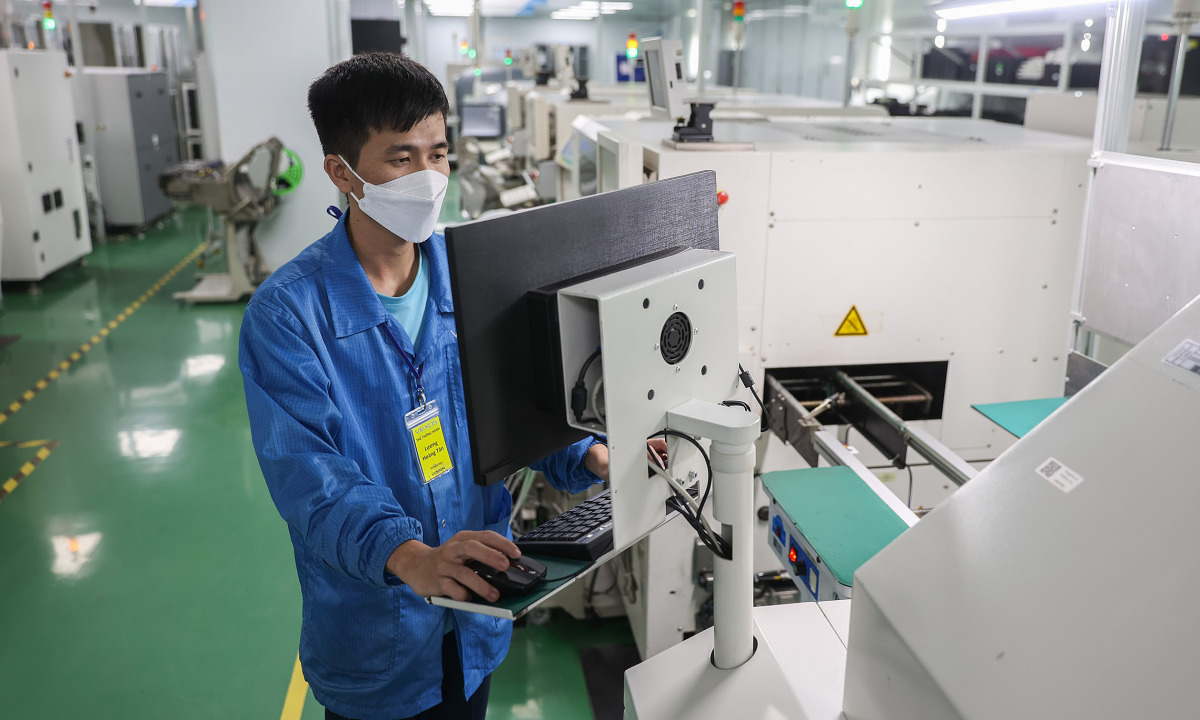Transforming Industrial Parks to Avoid Investor Losses
Doanh nghiệp (Businesses) and industry experts believe that careful planning and clear identification of suitable industries for transformation are essential. Promptly announcing these changes is also crucial to prevent investor losses.
The Impact of Industrial Park Relocation
After three years of bankruptcy filing due to relocation from Binh Chieu Industrial Park (Thu Duc District), Mr. Doan Sy Loi, director of Truong Loi Trading and Manufacturing Co., Ltd., who operates in the leather shoe industry, said they are still in shock.
In 1998, Truong Loi leased 34,000 square meters of land in Binh Chieu Industrial Park, and it took them two years to build a new factory. According to the lease contract, the initial term was 20 years, with the possibility of renewal if the factory had demand. However, in 2016, the park management announced that they would not renew the lease and requested Truong Loi to relocate and return the land for the construction of high-rise factories.
“Over the years, we have tried everything to stay, but our requests were denied,” Mr. Loi explained. As a result, the company went bankrupt, sold their machinery as scrap, and laid off 1,300 employees, with over half of them being over 35 years old.
The Need for Clear Guidelines
Mr. Marvin Tsao, General Director of Tan Thuan Co., Ltd., the management unit of Tan Thuan Export Processing Zone (District 7), stated that the city needs clear mechanisms, specific criteria, and an evaluation council to ensure investor peace of mind during the transformation of industrial parks.
Established over 30 years ago as the city’s first industrial park, Tan Thuan initially housed labor-intensive industries. However, since 2010, these industries have gradually reduced, making way for high-tech sectors. 13 years ago, there were 167 active businesses employing 65,000 workers in the park. Currently, there are 240 investors, but the number of workers has decreased to 60,000. Labor-intensive factories now account for 50% of the total and continue to decline.
According to Mr. Tsao, industrial park transformation is inevitable since many factories struggle to find labor and cannot afford to raise wages to attract workers. A decade ago, the relocation process was smoother, and companies found new investors who rented the land and invested in new factories in other provinces. However, the situation has changed, and many investors are now stuck.
The Importance of Planning and Support
With a remaining operating period of 19 years out of the maximum 50-year lease term, Tan Thuan’s traditional industries that rely heavily on labor face challenges in recruitment, reduced production efficiency, and declining exports. These businesses want to relocate but struggle to find investors willing to accept such a short remaining lease term. If they were to invest and spend two to three years building new factories, the remaining operating time would not be sufficient to recover costs and depreciate assets.
“Since industrial park transformation is currently slowing down, the city government needs to create an environment that reassures investors,” Mr. Tsao emphasized. Ho Chi Minh City should support traditional labor-intensive businesses in relocating to other areas. For new investors who meet the criteria and have appropriate business models, the city should grant them an additional 20-year investment license, aligning with the current regulations regarding industrial park operating periods.
Expert opinions support the need for careful planning for the transformation of industrial parks. By promptly announcing the criteria and industries eligible for investment, the labor market can prepare the necessary workforce. Universities also require time to invest in relevant programs and attract students, as well as businesses to place orders for training.
Building the Path for the Future
Deputy Chairman of the Ho Chi Minh City People’s Committee, Vo Van Hoan, revealed that industrial parks and export processing zones in the city have existed for 30 years, which accounts for 60% of their 50-year lease. The city recognizes the need to develop a roadmap for the future in the 2025-2030 plan, which will specify the steps for transforming these parks before their current leases expire.
“We need to determine which industrial parks to retain and which ones need to undergo technological transformation to modernize machinery, management, and human resources to meet the conditions for remaining,” Mr. Hoan stated.
The city’s plan will classify industrial parks based on specific criteria, with a focus on transforming labor-intensive industries and prioritizing high-tech businesses. Simultaneously, the city will seek new investors who meet clear criteria regarding technology, management, and capital to fill the vacancies left by parks whose lease terms have expired.
“Many businesses are eager to relocate, but they need time. In the near future, the city will discuss the criteria for each industry to strike a balance and ensure the benefits of all parties involved in the transformation of industrial parks,” Mr. Hoan concluded.
Link: Business Today

